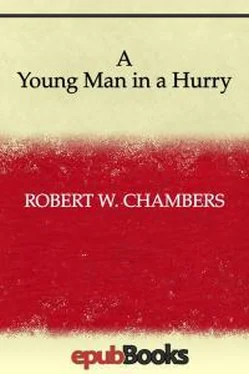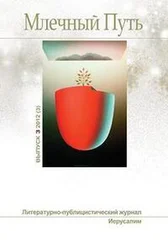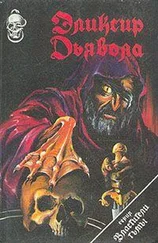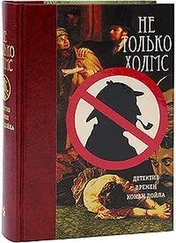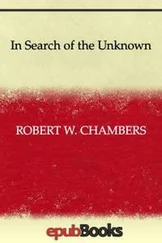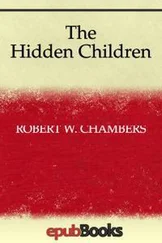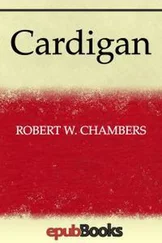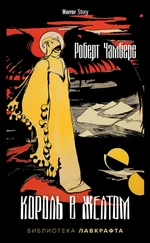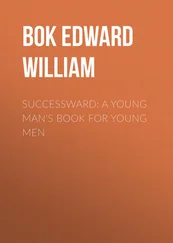Роберт Чамберс - A Young Man in a Hurry
Здесь есть возможность читать онлайн «Роберт Чамберс - A Young Man in a Hurry» весь текст электронной книги совершенно бесплатно (целиком полную версию без сокращений). В некоторых случаях можно слушать аудио, скачать через торрент в формате fb2 и присутствует краткое содержание. Год выпуска: 2014, Издательство: epubBooks Classics, Жанр: Классическая проза, на английском языке. Описание произведения, (предисловие) а так же отзывы посетителей доступны на портале библиотеки ЛибКат.
- Название:A Young Man in a Hurry
- Автор:
- Издательство:epubBooks Classics
- Жанр:
- Год:2014
- ISBN:нет данных
- Рейтинг книги:5 / 5. Голосов: 1
-
Избранное:Добавить в избранное
- Отзывы:
-
Ваша оценка:
- 100
- 1
- 2
- 3
- 4
- 5
A Young Man in a Hurry: краткое содержание, описание и аннотация
Предлагаем к чтению аннотацию, описание, краткое содержание или предисловие (зависит от того, что написал сам автор книги «A Young Man in a Hurry»). Если вы не нашли необходимую информацию о книге — напишите в комментариях, мы постараемся отыскать её.
A Young Man in a Hurry — читать онлайн бесплатно полную книгу (весь текст) целиком
Ниже представлен текст книги, разбитый по страницам. Система сохранения места последней прочитанной страницы, позволяет с удобством читать онлайн бесплатно книгу «A Young Man in a Hurry», без необходимости каждый раз заново искать на чём Вы остановились. Поставьте закладку, и сможете в любой момент перейти на страницу, на которой закончили чтение.
Интервал:
Закладка:
His exchange of greetings with Miss Elliott was quietly formal; with her father almost tender. It was one of the things she cared most for in him; and she walked to the veranda, leaving the two men alone—the man and the shadow of a man.
Once she heard laughter in the room behind her; and it surprised her, pacing the veranda there. Yet Burleson always brought a new anecdote to share with her father—and heretofore he had shared these with her, too. But now!—
Yet it was by her own choice she was alone there, pacing the moonlit porches.
The maid—their only servant—brought a decanter; she could hear the ring of the glasses, relics of better times…. And now better times were dawning again—brief, perhaps, for her father, yet welcome as Indian summer.
After a long while Burleson came to the door, and she looked up, startled.
"Will you sing? Your father asks it."
"Won't you ask me, too, Mr. Burleson?"
"Yes."
"But I want to show you my rose first. Will you come?—it is just a step."
He walked out into the moonlight with her; they stood silently before the bush which had so capriciously bloomed.
"Now—I will sing for you, Mr. Burleson," she said, amiably. And they returned to the house, finding not a word to say on the way.
The piano was in decent tune; she sat down, nodding across at her father, and touched a chord or two.
"The same song—the one your mother cared for," murmured her father.
And she looked at Burleson dreamily, then turned, musing with bent head, sounding a note, a tentative chord. And then she sang.
A dropping chord, lingering like fragrance in the room, a silence, and she rose, looking at her father. But he, dim eyes brooding, lay back unconscious of all save memories awakened by her song. And presently she moved across the room to the veranda, stepping out into the moonlit garden—knowing perfectly well what she was doing, though her heart was beating like a trip–hammer, and she heard the quick step on the gravel behind her.
She was busy with the long stem of the rose when he came up; she broke it short and straightened up, smiling a little greeting, for she could not have spoken for her life.
"Will you marry me?" he asked, under his breath.
Then the slow, clear words came, "I cannot."
"I love you," he said, as though he had not heard her. "There is nothing for me in life without you; from the moment you came into my life there was nothing else, nothing in heaven or earth but you—your loveliness, your beauty, your hair, your hands, the echo of your voice haunting me, the memory of your every step, your smile, the turn of your head—all that I love in you—and all that I worship—your sweetness, your loyalty, your bravery, your honor. Give me all this to guard, to adore—try to love me; forget my faults, forgive all that I lack. I know— I know what I am—what little I have to offer—but it is all that I am, all that I have. Constance! Constance! Must you refuse?"
"Did I refuse?" she faltered. "I don't know why I did."
With bare arm bent back and hand pressed over the hand that held her waist imprisoned, she looked up into his eyes. Then their lips met.
"Say it," he whispered.
"Say it? Ah, I do say it: I love you—I love you. I said it years ago—when you were a boy and I wore muslin gowns above my knees. Did you think I had not guessed it?…And you told father to–night—you told him, because I never heard him laugh that way before…. And you are Jack—my boy that I loved when I was ten—my boy lover? Ah, Jack, I was never deceived."
He drew her closer and lifted her flushed face. "I told your father—yes. And I told him that we would go South with him."
"You—you dared assume that!—before I had consented!" she cried, exasperated.
"Why—why, I couldn't contemplate anything else."
Half laughing, half angry, she strained to release his arm, then desisted, breathless, gray eyes meeting his.
"No other man," she breathed—"no other man—" There was a silence, then her arms crept up closer, encircling his neck. "There is no other man," she sighed.
The Market-hunter
A warm October was followed by a muggy, wet November. The elm leaves turned yellow but did not fall; the ash–trees lighted up the woods like gigantic lanterns set in amber; single branches among the maples slowly crimsoned. As yet the dropping of acorns rarely broke the forest silence in Sagamore County, although the blue–jays screamed in the alders and crows were already gathering for their annual caucus.
Because there had been as yet no frost the partridges still lurked deep in the swamps, and the woodcock skulked, shunning the white birches until the ice–storms in the north should set their comrades moving southward.
There was little doing in the feathered world. Of course the swallows had long since departed, and with the advent of the blue–jays and golden–winged wood peckers a few heavy–pinioned hawks had appeared, wheeling all day over the pine–woods, calling querulously.
Then one still night the frost silvered the land, and the raccoons whistled from the beach–woods on the ridges, and old man Jocelyn's daughter crept from her chilly bed to the window which framed a staring, frosty moon.
Through the silence she heard a whisper like the discreet rustle of silken hangings. It was the sound of leaves falling through the darkness. She peered into the night, where, unseen, the delicate fingers of the frost were touching a million leaves, and as each little leaf was summoned she heard it go, whispering obedience.
Now the moonlight seemed to saturate her torn, thin night–gown and lie like frost on her body; and she crept to the door of her room, shivering, and called, "Father!"
He answered heavily, and the bed in the next room creaked.
"There is a frost," she said; "shall I load the cartridges?"
She could hear him stumble out of bed and grope for the window.
Presently he yawned loudly and she heard him tumble back into bed.
"There won't be no flight to–night," he said; "the birds won't move for twenty–four hours. Go to bed, Jess."
"But there are sure to be a few droppers in to–night," she protested.
"Go to bed," he said, shortly.
After a moment she began again: "I don't mind loading a dozen shells, dad."
"What for?" he said. "It's my fault I ain't ready. I didn't want you foolin' with candles around powder and shot."
"But I want you to have a good time to–morrow," she urged, with teeth chattering. "You know," and she laughed a mirthless laugh, "it's Thanksgiving Day, and two woodcock are as good as a turkey."
What he said was, "Turkey be darned!" but, nevertheless, she knew he was pleased, so she said no more.
There was a candle on her bureau; she lighted it with stiff fingers, then trotted about over the carpetless floor, gathering up the loading–tools and flimsy paper shells, the latter carefully hoarded after having already served.
Sitting there at the bedside, bare feet wrapped in a ragged quilt, and a shawl around her shoulders, she picked out the first shell and placed it in the block. With one tap she forced out the old primer, inserted a new one, and drove it in. Next she plunged the rusty measuring–cup into the black powder and poured the glistening grains into the shell, three drams and a half. On this she drove in two wads. Now the shell was ready for an ounce and an eighth of number nine shot, and she measured it and poured it in with practised hand. Then came the last wad, a quick twirl of the crimper, and the first shell lay loaded on the pillow.
Before she finished her hands were numb and her little feet like frozen marble. But at last two dozen cartridges were ready, and she gathered them up in the skirt of her night–gown and carried them to her father's door.
Читать дальшеИнтервал:
Закладка:
Похожие книги на «A Young Man in a Hurry»
Представляем Вашему вниманию похожие книги на «A Young Man in a Hurry» списком для выбора. Мы отобрали схожую по названию и смыслу литературу в надежде предоставить читателям больше вариантов отыскать новые, интересные, ещё непрочитанные произведения.
Обсуждение, отзывы о книге «A Young Man in a Hurry» и просто собственные мнения читателей. Оставьте ваши комментарии, напишите, что Вы думаете о произведении, его смысле или главных героях. Укажите что конкретно понравилось, а что нет, и почему Вы так считаете.
